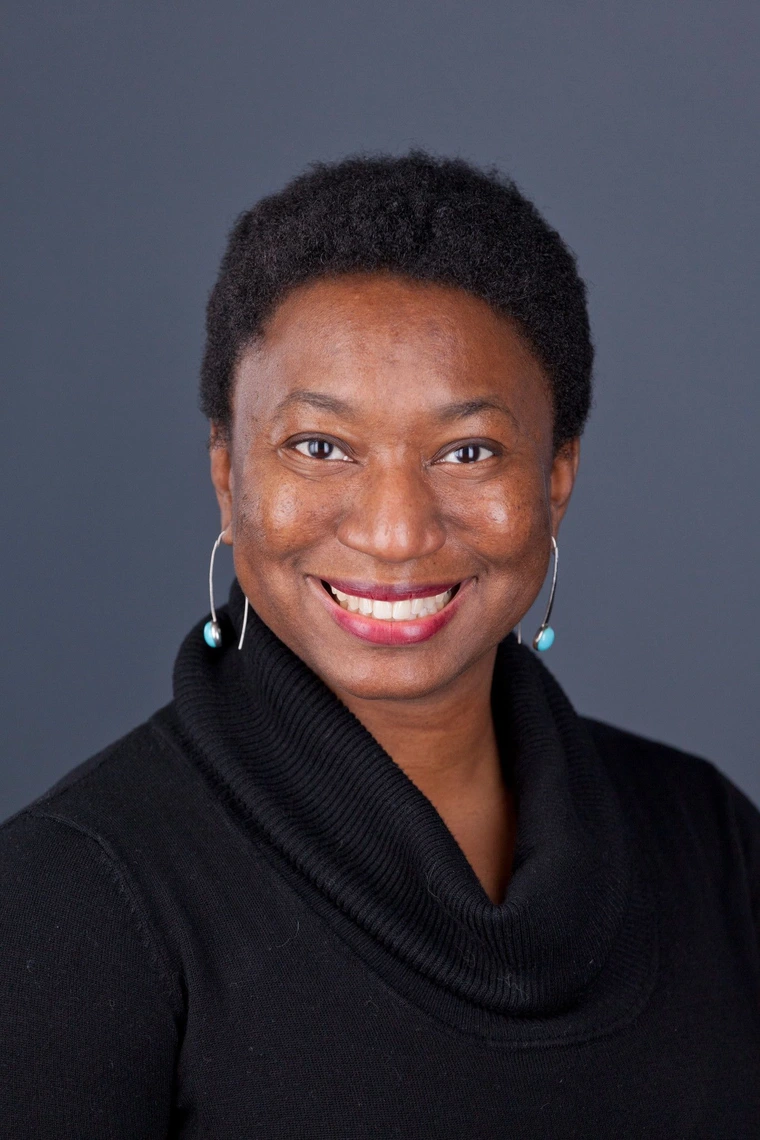M'Balia Thomas
Associate Professor

Modern Languages Room 473
Research Areas
Language, Discourse & Ideology
Arts-Based Research & Popular Culture
Immigrant, Refugee, Asylee Language & Citizenship Education
M'Balia Thomas teaches courses in the English undergraduate, MATESL graduate, and SLAT PhD programs. She is a Critical Applied Linguist with a focus on ideologies about language, language learning and language users. Her work has included arts-based research that examines what popular cultural texts (the systematic language patterns within these texts) can reveal about teaching, learning, and educational spaces. In this work, she has drawn upon a variety of qualitative research methods, including thematic, discourse, conversation, narrative, rhetorical-stylistics, text world theory, and corpus-based analyses. Through the study of written/spoken language—including the language of fictional learners and teachers—her work demonstrates that it is possible to gain relevant insight into learning, teaching, and assessment and the ideologies that shape and impede each.
More recently, her work has shifted towards engagement in the Digital Humanities. Through her TILAR Lab, she works to recover, showcase, and liberate from the depths of newspapers, broadcast and social media the testimonial injustices that occur to marginalized populations–in particular, those considered “non native” and “non standard" speakers of American English. This research draws upon theories and methodological tools from across related language fields to uncover the injustices (and the ideologies that underlie them) and highlight the everyday creativity taken up to resist and address these injustices.
Selected Journal Articles
Thomas, M. (2023). The stories teachers tell & the epistemological dilemmas they reveal. Teaching and Teacher Education. Vol. 132. [Link]
Thomas, M. (2023). Con artist: Non-Cosplay Participation at Comic Book Conventions as Arts Based Method of Inquiring into Resistance and the Undoing of Rules. Qualitative Inquiry: Special Issue: Embodied Reflexivity through the Arts. [Link]
Thomas, M. (2022). Dialogue as Black contemplative practice. Special Issue: “Transcendent wisdom and transformative action: Reflections from Black contemplatives”, Journal of Contemplative Inquiry. [Link]
Thomas, M. (2021b). A testimonial injustice ‘out here in the projects’ – Misrecognising victimhood in the bed intruder meme. Journal of Language and Discrimination, 5(2), 56-79. [Link]
Thomas, M., & Carvajal-Regidor, M. (2021). From “slow” to “being ‘lazy’ and slowing down” and the impact on student learning. Teaching and Learning Inquiry, 9(2). [Link]
Thomas, M. (2020b). Rendering the untellable, tellable: The cooperative work of face in conversational storytelling. Narrative Inquiry, 30(2), 364-380. [Link]
Selected Chapters in scholarly books and monographs
Thomas, M. (2023). Dumbledorisms: The Idiosyncratic Style of a Hogwarts Headmaster. In K. McDaniel & E. Strand (Eds), Potterversity: Essays Exploring the World of Harry Potter, pp. 215-229. McFarland. [Link]
Thomas, M. (2023). The ethical effects of voice-over narration on a victim testimonial: A text-world analysis of ‘The Bed Intruder’ meme. In J. Douthwaite & U. Tabbert (Eds.) The Linguistics of Crime, pp. 174-193. Cambridge University Press. [Link]
Thomas, M., & Carvajal, M. ⟊ (2020). Culturally responsive pedagogy in TESOL. In P. Vinogradova & J. K. Shin (Eds.), Contemporary Foundations for Teaching English as an Additional Language: Pedagogical Approaches and Classroom Applications, pp. 91-99. Routledge. [Link]
Thomas, M. (2018b). The girl who lived: Exploring the liminal spaces of self-study research with textual critical partners. In D. Garbett & A. Ovens (Eds.). Pushing boundaries and crossing borders: Self-study as a means for knowing pedagogy, pp. 327-333. S-STEP. [Link]

